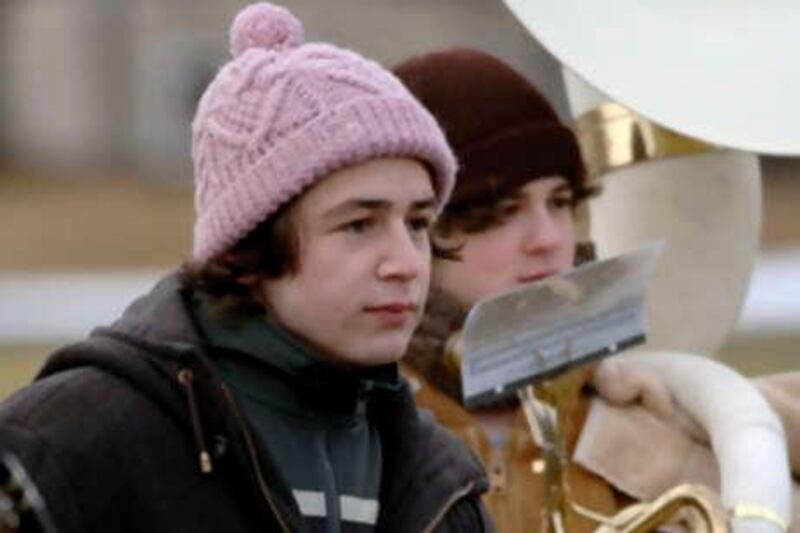A high school band practice is interrupted when two dull gunshots reverberate across the slate grey skies of a small, nondescript American town. Tracking back a few weeks earlier, we meet the teenager (and trombonist) Arthur (Michael Angarano), his co-worker at a local restaurant Annie (Kate Beckinsale), her young daughter, and soon-to-be ex-husband Glenn (Sam Rockwell), and several more typically convoluted relationships. Annie is having an affair with her best friend's husband, and feels bad. Glenn is refusing to admit the marriage is over and has committed himself to religion. Arthur's parents are also separating. It's a gloomy picture, except that Arthur himself is falling in love with the awkward, arty newcomer Lila (Olivia Thirlby, the best friend in Juno). These touching, true scenes of young love are the best in the movie - affectless, tender and understated, and strongly reminiscent of the director David Gordon Green's second film, All the Real Girls. Green's forte is a kind of semi-improvised, rootsy lyricism, which he undercuts with dollops of odd, idiosyncratic humour (since Snow Angels he has gone on to make the hit Judd Apatow comedy Pineapple Express). Working from a novel by Stewart O'Nan, Green has a rockier time with the corrosive Glenn-Annie relationship, though Rockwell is such a skilful actor he makes us forgive this character's trespasses. Evocative of such downbeat fare as Affliction and The Sweet Hereafter, Snow Angels more than lives up to its fatalistic opening - this is not the movie for a night of mindless escapism. But if you can handle the heavy emotional drift, Green ensures there are epiphanies and happy accidents rubbing up against the story's fundamentally bleak prognosis.
Snow Angels
David Gordon Green's forte is a kind of rootsy lyricism undercut with idiosyncratic humour.

Editor's picks
More from The National




